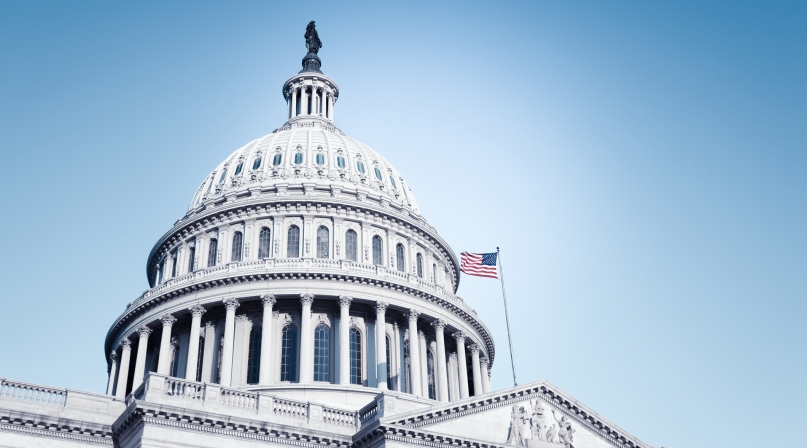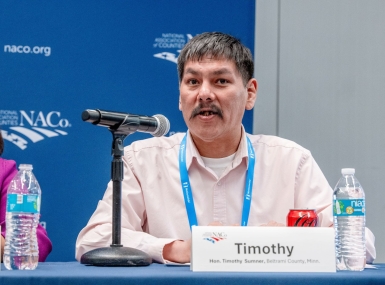Congress enacts a Continuing Resolution to avert government shutdown through December 20, 2024
Author

Paige Mellerio
Upcoming Events
Related News

Key Takeaways
On September 25, the U.S. Senate voted 78-18 to pass a bipartisan Continuing Resolution (CR; H.R. 9747) to extend federal spending and avert a government shutdown through December 20, 2024. The U.S. House passed the measure unanimously by voice vote also on September 25, just days before the end of Fiscal Year (FY) 2024 on September 30 and beginning of FY 2025 on October 1.
For more information on the status specific FY 2025 spending bills and county funding priorities, access NACo’s FY 2025 Appropriations Tracker.
Access 2025 Appropriations Tracker here
What’s in the CR?
Passage of H.R. 9747 comes after the U.S. House failed to pass a long-term CR coupled with partisan policy riders. As such, H.R. 9747 is relatively “clean” or free of policy riders but:
- Frees up about $20 billion for the U.S. Federal Emergency Management Agency (FEMA) Disaster Relief Fund (DRF), which will take the DRF out of Immediate Needs Funding allowing for counties to receive reimbursement for long-term recovery projects
- Continues to fund the U.S. Department of Transportation Federal Aviation Administration Essential Air Service that ensures rural and remote areas have access to air transportation
- Extends current Supplemental Nutrition Assistance Program (SNAP) replacement benefits for victims of card skimming, ensuring vulnerable residents who are victims of fraud can access their benefits
- Extends the Temporary Assistance for Needy Families (TANF) program, an important source of flexible funding for a variety of anti-poverty activities benefiting vulnerable county residents
Of particular note for counties, the bill does not include a reauthorization of the U.S. Forest Service’s Secure Rural Schools (SRS) program that provides revenue-sharing payments to forest counties. Counties urge Congress to renew its long-standing federal obligation.
What’s next?
The U.S. Congress adjourned on Friday, September 27 and will be in recess for the month of October to campaign in the last month before the November 2024 general election. Both the U.S. House and Senate are scheduled to reconvene on November 12, the week after election day.
The results of the election will heavily influence the agenda of the lame-duck session of Congress, or the period between the November general election and the beginning of the new Congress in January.
- Option 1: The U.S. Congress could work to pass a final FY 2025 spending via an omnibus package before the current CR expires on December 20, 2024
- Option 2: The U.S. Congress could enact another CR to further extend the FY 2025 appropriations process into the new year and the next Congress
NACo will continue to keep members informed on developments in the federal appropriations process.
How does this impact counties?
Counties rely on federal funds to provide key services to our residents and uncertainty in spending levels and timing of delivery impact our ability to budget and plan for long-term investments. As key intergovernmental partners, we urge the U.S. Congress and the Administration to commit to reaching bipartisan agreements on federal appropriations each year by October 1 and to reach a long-term funding agreement for FY 2025 as soon as possible to ensure certainty for county governments.
Resource
2025 Appropriations Tracker

Related News

County Countdown – April 7, 2025
Every other week, NACo's County Countdown reviews top federal policy advocacy items with an eye towards counties and the intergovernmental partnership. This week features a budget reconciliation update, HHS restructuring and more.

NACo Legal Advocacy: Bondi v. VanDerStok
Garland v. VanDerStok has implications for the ability of county law enforcement to uphold public safety and investigate crimes involving ghost guns.
